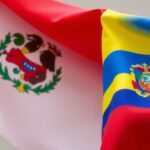Financial literacy programs are designed to equip individuals with the knowledge and skills necessary to make informed financial decisions. These programs cover a wide range of topics, including budgeting, saving, investing, credit management, and debt reduction. The primary goal is to empower participants to take control of their financial futures, enabling them to navigate the complexities of personal finance with confidence.
In an increasingly complex financial landscape, where individuals are often bombarded with various financial products and services, the importance of financial literacy cannot be overstated. These programs can be offered through various channels, including community organizations, educational institutions, and online platforms. They may take the form of workshops, seminars, one-on-one coaching sessions, or self-paced online courses.
By providing practical tools and resources, financial literacy programs aim to demystify financial concepts and promote responsible financial behavior. As individuals gain a better understanding of their finances, they are more likely to make sound decisions that lead to long-term financial stability and success.
Types of Grants Available for Individuals
When it comes to financial literacy, various grants are available to support individuals seeking to enhance their financial knowledge and skills. These grants can come from government agencies, non-profit organizations, and private foundations. One common type of grant is the educational grant, which provides funding for individuals to attend workshops or courses focused on financial literacy.
These grants often cover tuition fees, materials, and sometimes even travel expenses, making it easier for individuals to access valuable educational resources. Another type of grant is the program development grant, which is aimed at organizations that wish to create or expand financial literacy initiatives. While these grants primarily target organizations rather than individuals directly, they ultimately benefit the community by increasing access to financial education.
Additionally, some grants are specifically designed for underserved populations, such as low-income families or minority groups. These targeted grants aim to bridge the financial literacy gap and ensure that all individuals have the opportunity to improve their financial well-being.
Eligibility Requirements for Financial Literacy Grants
Eligibility requirements for financial literacy grants can vary significantly depending on the grant provider and the specific program being offered. Generally, applicants must demonstrate a genuine interest in improving their financial literacy and a commitment to applying what they learn in their daily lives. For educational grants, applicants may need to provide proof of enrollment in a qualifying program or course.
Some grants may also require applicants to submit a personal statement outlining their financial goals and how the grant will help them achieve those objectives. In addition to individual qualifications, some grants may have demographic or income-based criteria. For instance, grants aimed at low-income individuals may require applicants to provide documentation of their income level or participation in government assistance programs.
Similarly, grants targeting specific communities may require proof of residency or affiliation with certain organizations. Understanding these eligibility requirements is crucial for potential applicants, as it helps them identify which grants they may qualify for and tailor their applications accordingly.
How to Apply for Financial Literacy Grants
Applying for financial literacy grants typically involves several key steps that can vary based on the specific grant program. The first step is thorough research to identify available grants that align with your financial education goals. Many organizations provide detailed information about their grant offerings on their websites, including application deadlines and required documentation.
It’s essential to read through the eligibility criteria carefully to ensure you meet all requirements before proceeding with your application. Once you have identified suitable grants, the next step is to prepare your application materials. This often includes filling out an application form, writing a personal statement or essay, and providing any necessary documentation such as proof of income or enrollment in a financial literacy program.
It’s important to present your case clearly and compellingly, highlighting your motivation for seeking the grant and how it will contribute to your financial education journey. After submitting your application, be sure to follow up if you do not receive confirmation of receipt within a reasonable timeframe.
Impact of Financial Literacy Programs on Individuals
The impact of financial literacy programs on individuals can be profound and far-reaching. Participants often report increased confidence in managing their finances and making informed decisions about spending, saving, and investing. This newfound knowledge can lead to improved financial behaviors, such as creating budgets, reducing debt, and building emergency savings.
As individuals become more adept at handling their finances, they are better equipped to achieve their long-term financial goals, whether that involves purchasing a home, funding education, or planning for retirement. Moreover, the benefits of financial literacy extend beyond individual participants; they can also have a positive ripple effect on families and communities. When individuals improve their financial literacy skills, they are more likely to share that knowledge with family members and friends, fostering a culture of financial awareness within their social circles.
This collective improvement in financial literacy can contribute to stronger communities overall, as more individuals gain the skills necessary to make sound financial decisions that promote economic stability and growth.
Resources for Finding Financial Literacy Grants
Finding financial literacy grants can be a straightforward process if you know where to look. One of the best starting points is online databases that compile information about available grants from various sources. Websites such as Grants.gov provide a comprehensive list of federal grant opportunities, while platforms like Foundation Center offer insights into private foundations that fund educational initiatives.
Additionally, local community organizations often have information about regional grants aimed at promoting financial literacy. Networking can also be an effective way to discover grant opportunities. Engaging with local non-profits focused on financial education or attending community events related to personal finance can help you connect with others who may have insights into available funding sources.
Furthermore, social media platforms and online forums dedicated to personal finance can serve as valuable resources for sharing information about grants and funding opportunities. By leveraging these resources and staying proactive in your search, you can increase your chances of finding the right financial literacy grant that aligns with your goals.


























